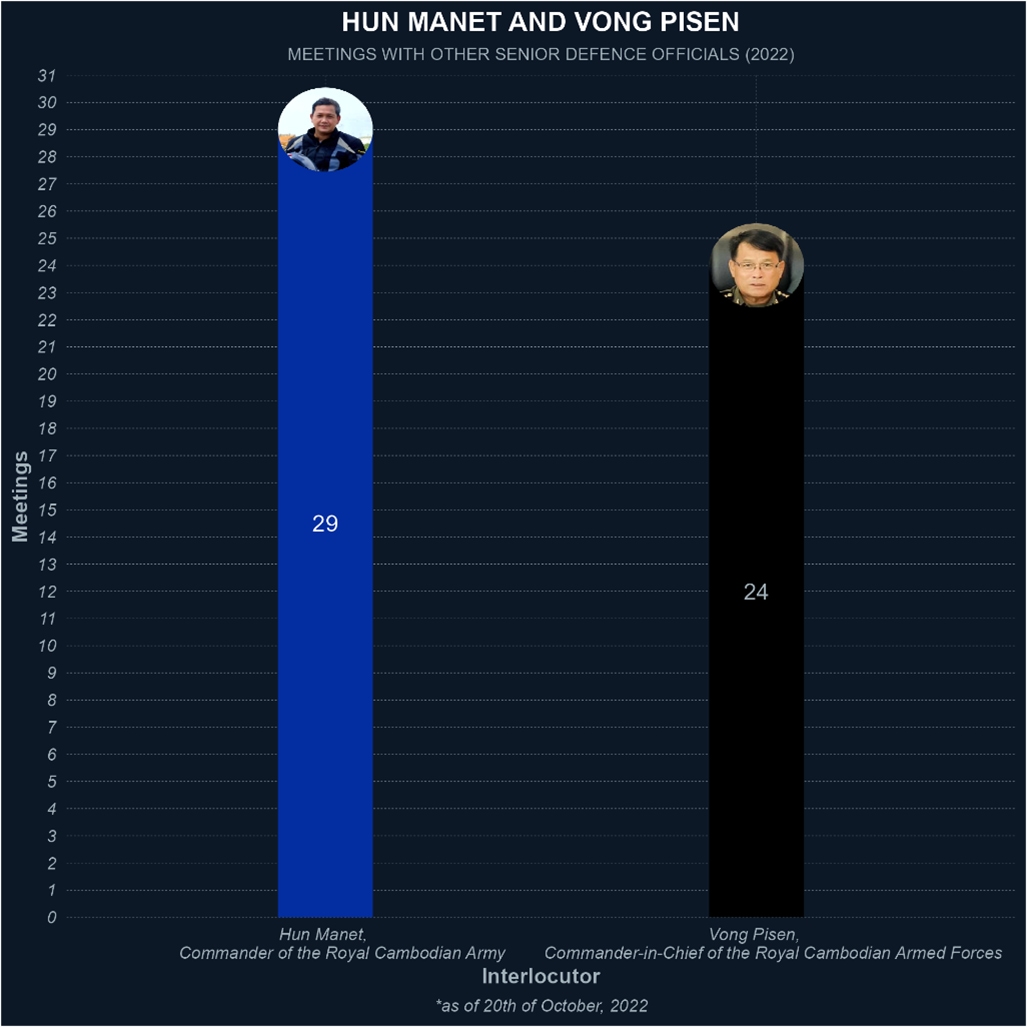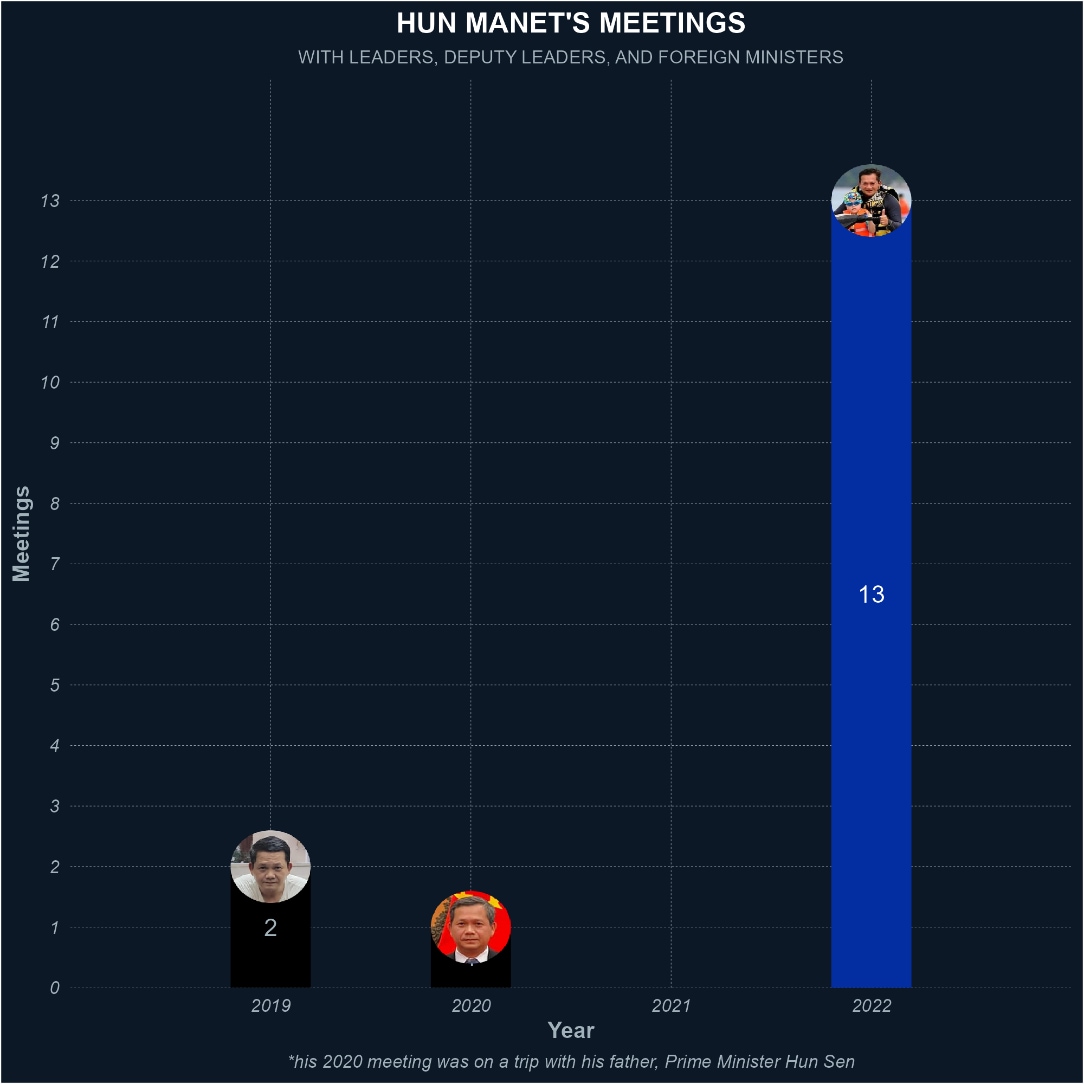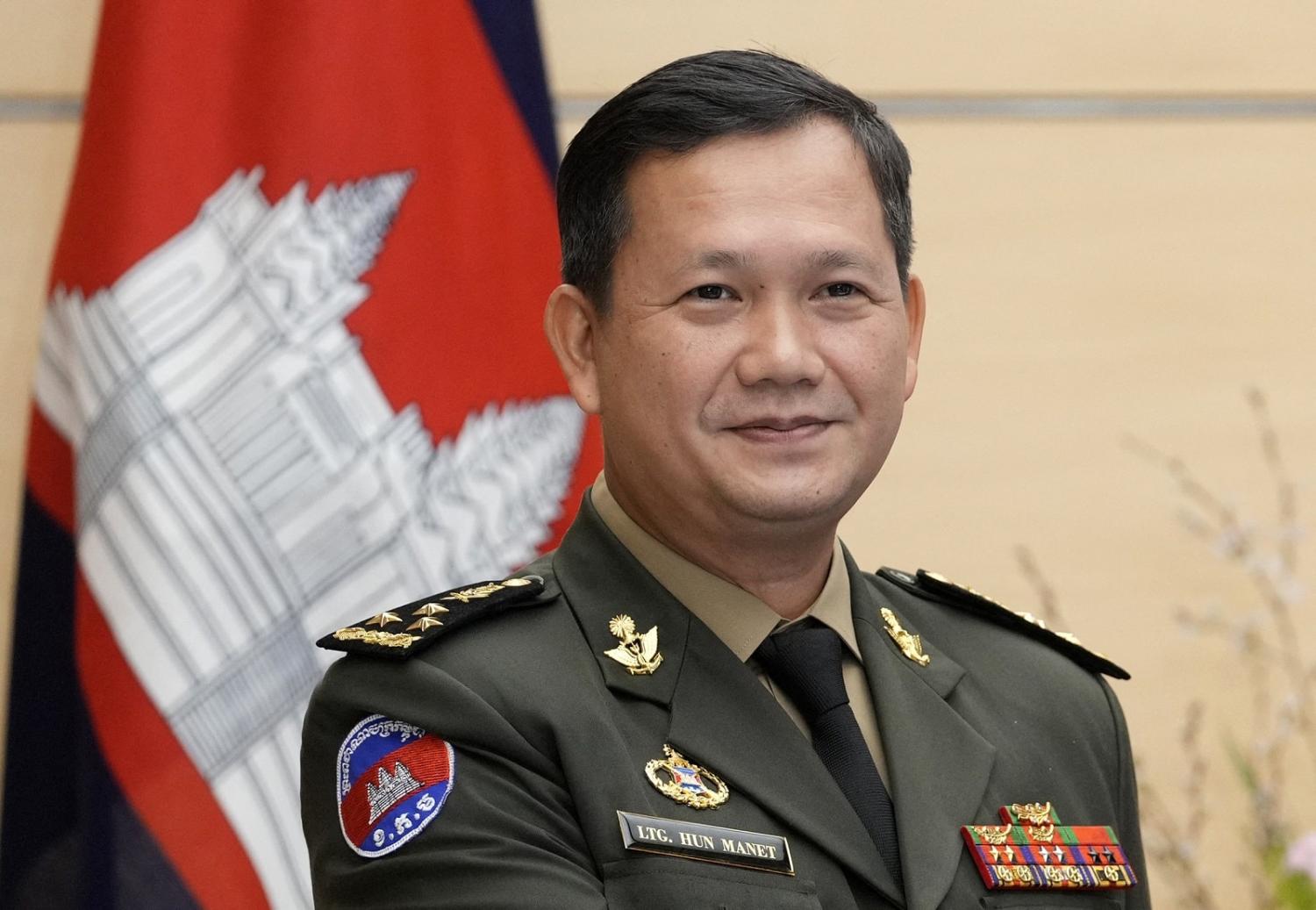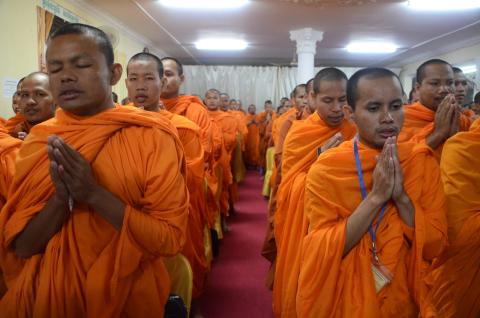Among its 133 indicators, the Lowy Institute’s Asia Power Index – an annual survey of the distribution of power in the region – tracks defence dialogues (the number of meetings held between senior defence officials) and diplomatic dialogues (meetings between foreign ministers and leaders). This data can reveal ways in which countries present themselves to the world. For example, Indonesia’s foreign minister is far more active on the global stage than the country’s head of government, while for Japan, the reverse is true.
One particularly interesting case highlighted by the Index is that of Hun Manet, the Commander of the Royal Cambodian Army. The son of Prime Minister Hun Sen, Hun Manet was trained at West Point in the United States and was announced as the future prime ministerial candidate for the Cambodian People’s Party in late 2021. While it may not be at the next election, scheduled for 23 July this year, observers note that the transition is already in progress.
Meanwhile, Hun Manet remains active in regional defence diplomacy, and in 2022 met with 29 senior defence officials – in addition to the defence ministers of Vietnam, Thailand, Laos, Japan, China and India. This is consistent with his international engagements in previous years, and with those of Vong Pisen, Commander-in-chief of the Royal Cambodian Armed Forces.

Hun Manet met with his fellow Thai and Vietnamese defence officials the most – five times each in 2022 – while meeting Japanese counterparts four times. By contrast, Vong Pisen’s engagements were generally concentrated in Southeast Asia, the Commander-in-chief only meeting with the Japanese Chief of Staff on his trip to Cambodia, and Deputy Chief of Staff on Vong Pisen’s trip to Japan.
Hun Manet was most active in meeting his counterparts from the Mekong region (14 engagements with Vietnam and seven with Thailand between 2019 and 2022), followed by other important regional actors such as Japan, South Korea and China. In that same period, Australian defence officials have met with Hun Manet twice, while those from the United States have met him three times.
More importantly, Hun Manet’s interactions with leaders, deputy leaders and foreign ministers have increased sharply since his announcement as Cambodia’s next prime minister.

Prior to the succession announcement, Hun Manet had limited engagement with senior political figures. In 2019, he only met with the Singaporean foreign minister and deputy prime minister, both on his trip to Singapore. While in 2020, he met with Chinese President Xi Jinping, although that was during a trip to China with his father.
However, since Hun Sen’s declaration of support for his son, things have changed. In 2022, Hun Manet met with ten leaders, deputy leaders or foreign ministers, including the Australian and Chinese foreign ministers, and the president of Timor-Leste on their trips to Cambodia. On his visit to Japan in February, he met both the foreign minister and Prime Minister Fumio Kishida. His other meetings with leaders were on his trips to Cambodia’s Mekong neighbours. These included the Vietnamese president, and the Laotian secretary-general/president, prime minister and minister of Public Security. The Vietnamese prime minister and chairman of the National Assembly also met with Hun Manet on their trips to Cambodia. In addition, he met with the Chinese director of the International Liaison Department, once virtually and once in Phnom Penh.
While it would be misguided to draw conclusions about Cambodia’s foreign policy trajectory from Hun Manet’s diplomatic engagements alone, they indicate that his focus is on shoring up ties with Cambodia’s neighbours, as well as close partners China and Japan. Despite Hun Manet’s West Point education, his engagement with the United States has been limited. This suggests that both Washington and Canberra may need to be more active in pursuing pathways to influence the man who is already on course to be Cambodia’s next prime minister.

